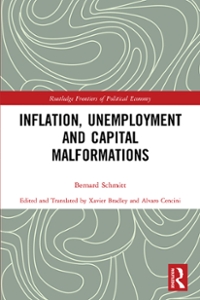Question
MY QUESTION- Based on your study of the material presented in chapters one and two of your text, discuss the link between scarcity, choice, and
MY QUESTION- Based on your study of the material presented in chapters one and two of your text, discuss the link between scarcity, choice, and opportunity cost (please include specific examples to illustrate the link). CHAPTER 1-2cScarcity and a Definition of EconomicsWe are now ready to define a key concept in economics:scarcity.Scarcityis the condition in which our wants (for goods) are greater than the limited resources (land, labor, capital, and entrepreneurship) available to satisfy those wants. In other words, we want goods, but not enough resources are available to provide us with all the goods we want.Look at it this way: Our wants (for goods) are infinite, but our resources (which we need to produce the goods) are finite. Scarcity is the result of our infinite wants hitting up against finite resources.Many economists say that if scarcity didn't exist, neither would economics. In other words, if our wants weren't greater than the limited resources available to satisfy them, there would be no field of study called economics. This is similar to saying that if matter and motion didn't exist, neither would physics or that if living things didn't exist, neither would biology. For this reason, we defineeconomicsin this text as the science of scarcity. More completely,economics is the science of how individuals and societies deal with the fact that wants are greater than the limited resources available to satisfy those wants.Thinking Like an EconomistScarcity Affects Everyone- Everyone in the world?even a billionaire?has to face scarcity. Billionaires may be able to satisfy more of their wants for tangible goods (houses, cars) than most people, but they still may not have the resources to satisfy all their wants. Their wants might include more time with their children, more friendship, no disease in the world, peace, and a hundred other things that they don't have the resources to "produce.Opportunity Cost- So far, we have established that people must make choices because scarcity exists. In other words, because our seemingly unlimited wants push up against limited resources, some wants must go unsatisfied. We must thereforechoosewhich wants we will satisfy and which we will not. The most highly valued opportunity or alternative forfeited when we make a choice is known asopportunity cost. Every time you make a choice, you incur an opportunity cost. For example, you have chosen to read this chapter. In making this choice, you denied yourself the benefits of doing something else. You could have watched television, written text messages to a friend, taken a nap, eaten a few slices of pizza, read a novel, shopped for a new computer, and so on. Whatever youwould have chosento do is the opportunity cost of your reading this chapter. For instance, if you would have watched television instead of reading this chapter?if that was your next best alternative?then the opportunity cost of reading the chapter is watching television.Opportunity Cost and Behavior- Economists believe that a change in opportunity cost can change a person's behavior. For example, Ryan, who is a sophomore at college, attends classes Monday through Thursday of every week. Every time he chooses to go to class, he gives up the opportunity to do something else, such as earn $15 an hour working at a job. The opportunity cost of Ryan's spending an hour in class is $15.Now let's raise the opportunity cost of attending class. On Tuesday, we offer Ryan $70 to skip his economics class. He knows that if he attends his economics class, he will forfeit $70. What will Ryan do? An economist would predict that as the opportunity cost of attending class increases relative to the benefits of attending, Ryan is less likely to go to class.This is how economists think about behavior:The higher the opportunity cost of doing something, the less likely it is that it will be done.This is part of the economic way of thinking.

Step by Step Solution
There are 3 Steps involved in it
Step: 1

Get Instant Access to Expert-Tailored Solutions
See step-by-step solutions with expert insights and AI powered tools for academic success
Step: 2

Step: 3

Ace Your Homework with AI
Get the answers you need in no time with our AI-driven, step-by-step assistance
Get Started


